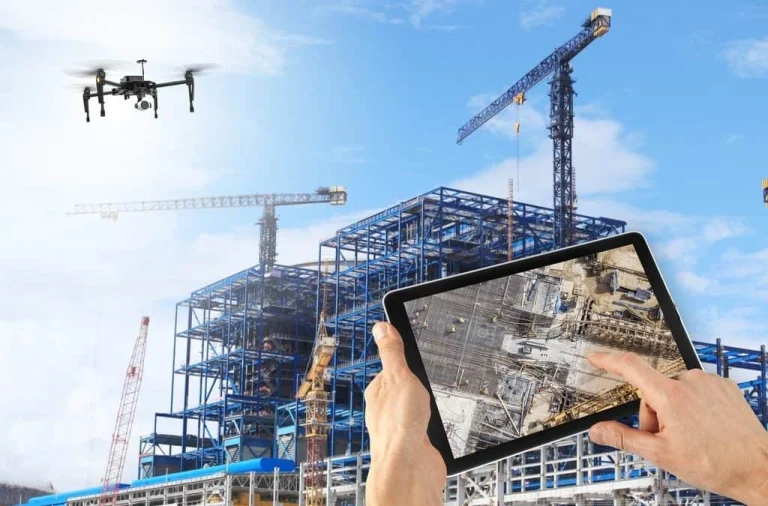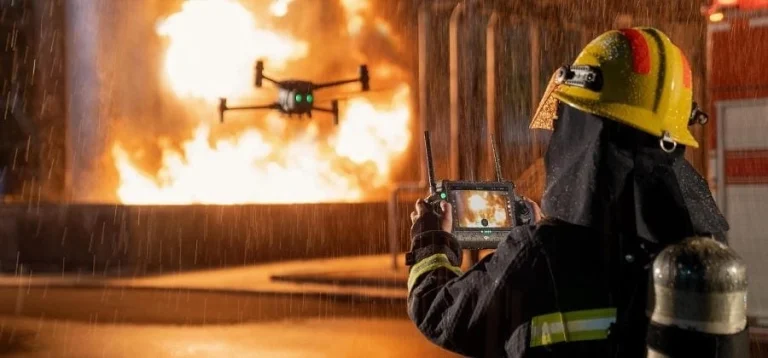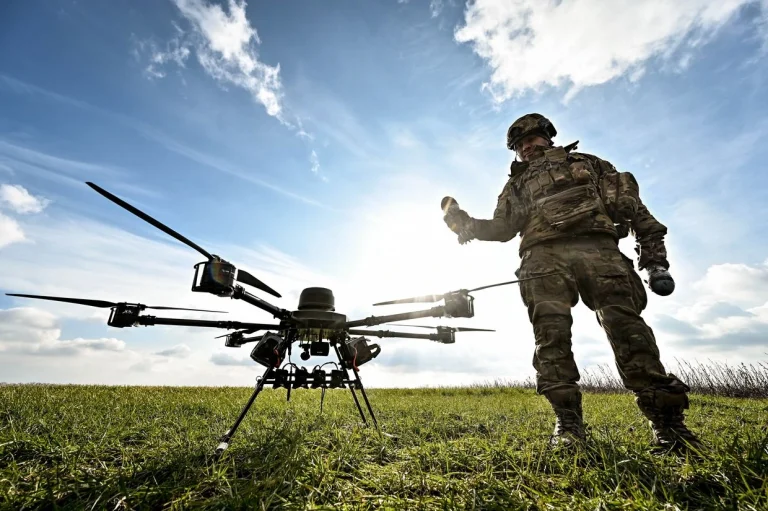Key Applications of Drones in the Oil and Gas Sector
Pipeline Inspection and Monitoring
Drones shake up pipeline checks. They’re cheap and fast. They keep things safe too. With sharp cameras, heat sensors, and GPS, they spot leaks or damage. They catch sneaky activity too. Drones zip over huge areas quick. They find problems early. This cuts risks to nature and wallets. They can fly in tough or risky spots where people can’t easily go.
Offshore Rig Surveillance and Maintenance
Offshore oil work loves drones. They check rigs and gear. They look for rust or weak spots. They track how things run. No need for divers or big shutdowns. This saves cash. It keeps workers safer too. Drones dodge dangers like rough seas or wild weather.
Environmental Monitoring and Compliance
Green rules matter in oil and gas. Drones help out. They carry sensors to check air or spot gas leaks. They test land or water for pollution. They grab data fast and exact. This helps firms follow eco-laws. It shrinks their harm to nature. Drones also give proof for audits or legal fights.
Emergency Response and Disaster Management
When crises hit—like spills or fires—drones step up. They give live sky views of trouble spots. This helps teams size up damage. They plan better fixes. Drones with heat cameras find fire hot zones. They can even locate people needing rescue in chaos.
Advantages of Using Drones in Oil and Gas Operations
Improving Safety Standards in Hazardous Environments
Drones boost safety big time. They take on risky jobs. No need for folks to climb flares or trek tough lands. Drones do it from afar. This cuts chances of accidents. It shields workers from gases, heat, or other hazards in the field.
Precision Data Collection for Better Decision-Making
Drones grab top-notch data. They snap clear pics of worn gear. They map big zones for drilling plans. This info is super accurate. It helps bosses make smart calls. It fuels plans to fix stuff before it breaks.
Minimizing Downtime Through Real-Time Monitoring
Drones watch things live. They spot issues right away. This lets firms fix problems fast. A drone’s heat camera might catch a hot rig part before it quits. That keeps operations humming with less downtime.
Challenges and Considerations for Drone Integration
Regulatory Compliance for UAV Deployment
Flying drones ain’t free and easy. Rules are tight. They differ by place. Firms must follow aviation laws. There are limits on how high drones fly. No-fly zones near key sites are a thing. Operators need licenses too. Staying legal is a must.
Addressing Technical Limitations in Harsh Environments
Rough conditions test drones. Think high winds or freezing cold. Salty air can wreck them too. Tough drones with strong batteries—like those from Taixing Shengya Electronic Technology Co., Ltd.—handle it better. They keep working in nasty spots. Our drone batteries can significantly improve the endurance of your products.
Training Requirements for Operators
Drones need skilled hands. Operators must know UAV tech. They need oil and gas know-how too. Good training is key. It covers data crunching or crisis handling. This ensures drones do complex jobs well.
Innovations in Drone Technology Tailored to the Oil and Gas Industry
Advanced Imaging Systems for Inspections
Drones with fancy imaging are game-changers. High-res cameras and heat sensors spot tiny issues. LiDAR tech maps things exact. They catch pipeline leaks or shaky rigs fast. They send live data. This helps fix problems before they grow. Drones reach tricky spots like offshore platforms or tight spaces. They beat old-school checks hands-down.
Long-Endurance Batteries for Extended Operations
Long-lasting batteries power up drones. High-energy lithium-ion batteries hit 340wh/kg. They let drones fly far without stops. Taixing Shengya Electronic Technology Co., Ltd. makes custom ones. They fit tough oil jobs. These batteries last up to 1,000 charges. That’s cost-smart for long-term work.
Integration of AI and Machine Learning for Predictive Maintenance
AI and machine learning boost drones. They crunch inspection data. They predict when gear might fail. This cuts downtime. It saves on repairs. AI drones spot rust patterns on pipes. They catch hot rig parts early. Fixes happen before big breakdowns.
Future Trends in Drone Applications for Oil and Gas
Expanding Use Cases Across Upstream, Midstream, and Downstream Activities
Drones work everywhere in oil and gas. In upstream, they map lands for drilling. They spot good sites with sharp imaging. In midstream, they guard pipelines over long stretches. In downstream, they check tanks or track emissions. They make every step safer and smoother.
Collaborations Between UAV Manufacturers and Energy Companies
Drone makers and oil firms team up. They spark new ideas. Customization from makers—like tailored sensors—fits oil needs. These deals push tech like auto-flying systems. They make drones tougher for harsh jobs.
The Role of Sustainable Practices Enhanced by Drones
Drones help go green. They cut need for gas-guzzling trucks or choppers. This lowers emissions. They track air or water quality too. That keeps firms eco-friendly. It boosts their rep as planet-friendly players.
Frequently Asked Questions
How do advanced imaging systems benefit drone applications in oil and gas?
They spot leaks or weak spots. High-res cameras and heat sensors give clear, fast data.
What makes long-endurance batteries crucial for drone operations?
They let drones fly longer. No need for constant recharges. They cover big areas.
How does AI improve drone functionality in this industry?
It predicts gear issues. It cuts downtime. It saves cash on fixes.
Are drones sustainable solutions for oil and gas operations?
Yes. They swap out heavy vehicles. That drops emissions and helps the planet.
For custom drone battery solutions, reach out to Taixing Shengya Electronic Technology Co., Ltd.










